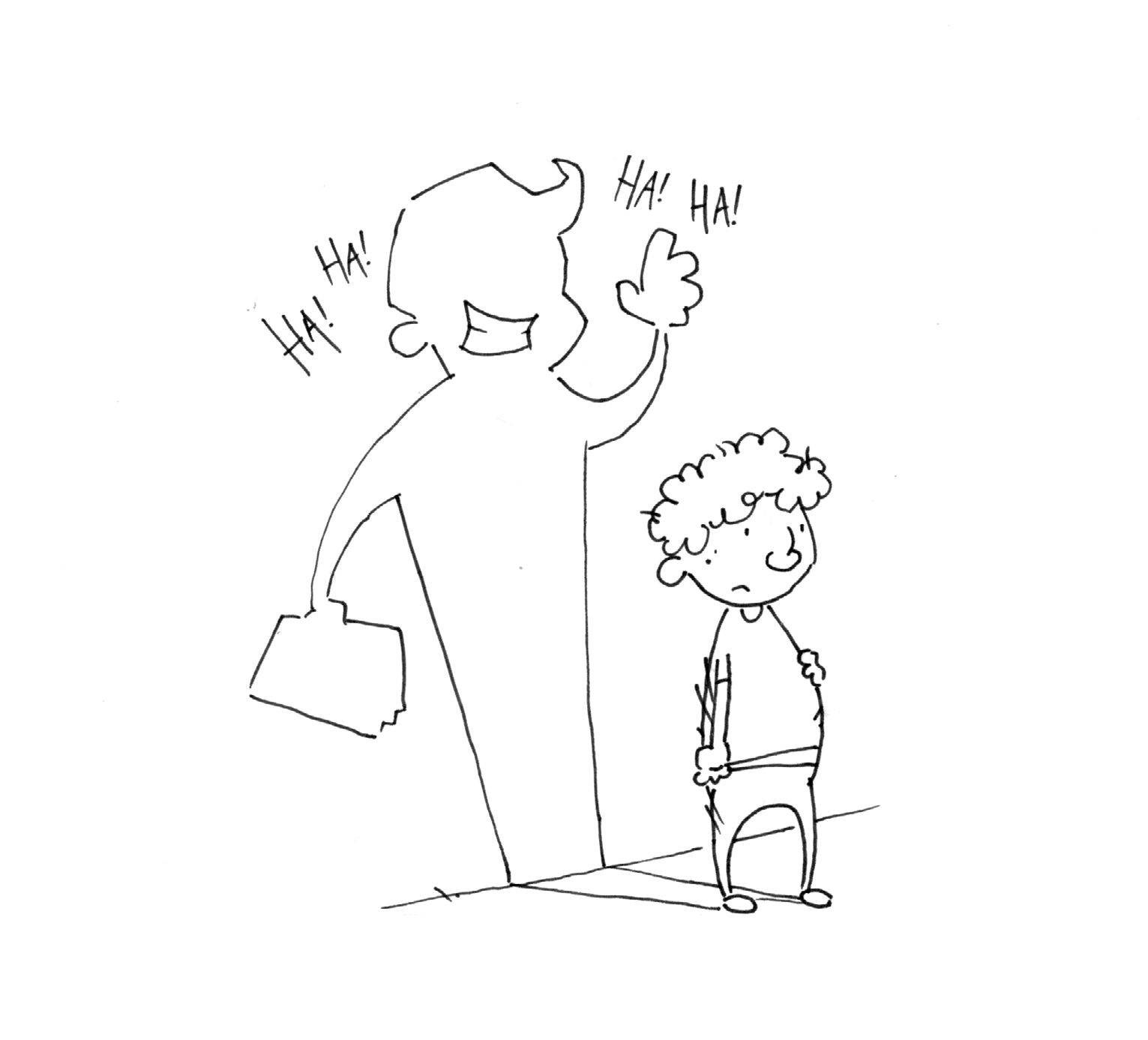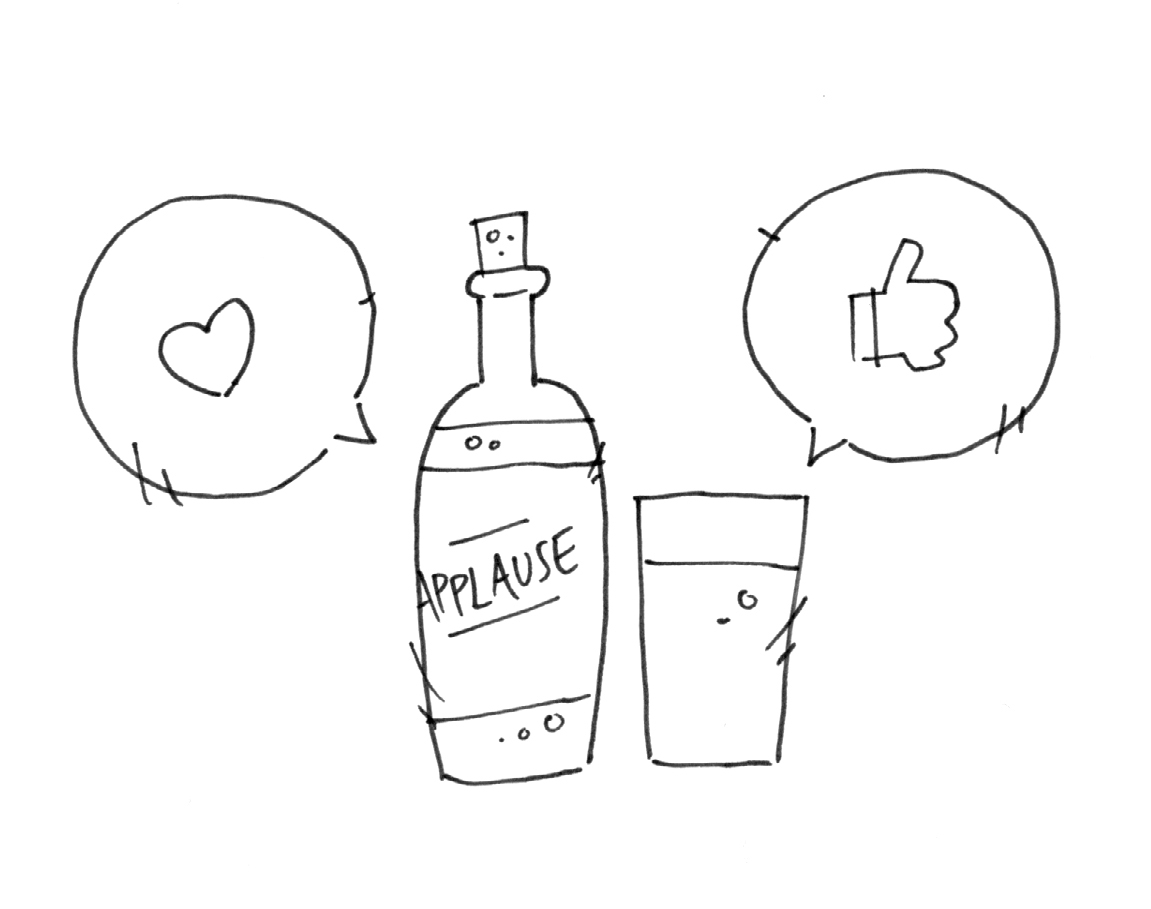 I have.
I have.
I’ve felt like no one in the world knew who I was. I’ve felt like I had to be someone I’m not. I’ve felt like, no matter who I was, no one would care.
I’ve felt alone. I’ve felt like I was living with a mask. And I’ve seen others wearing masks, too. Maybe you’ve looked around your work or school and thought: “What are we all doing? Why are we all trying to impress each other? Why can’t anyone accept me for who I am?”
All of us turn, again and again, to whatever “mask” we’ve created for ourselves—the Jokester, the Smart Kid, the Athlete, the Fashionista. Even being a social outcast can become a mask—we start doing everything to “not be like the sell-outs,” and so we stop being ourselves.
And we do it all because, deep down, we’re afraid. What if the mask comes off? What if people knew what I know about me? What if the people who hate me are right, and the people who love me are wrong? What then?
Where fear comes from
So fear is what leads to faking it. And in his parable in Luke 18 v 9-14, Jesus shows us where that fear comes from. It comes from us deciding what will make us good, right and worthy of love: trusting in ourselves that we are righteous.
In my own life, I’ve seen this happen in three ways:
 “God will like me when…” syndrome. This is a tricky one, because it sounds good. God will like me when I stop looking at porn. When I have my anger under control. When I go to church. When I read my Bible. When I quit my addictions. When I achieve nirvana (if I’m a Buddhist), or keep Adhan (if I’m a Muslim), or become one with the universe. The problem with this approach is this: it’s self-righteousness in disguise. Think about it: did GOD ever say he would like you when you achieve these things? Or, was that you, or some other mere human? People who have this problem often say things like: “I know God forgives me, but I just can’t forgive myself.” And really, that makes US God, doesn’t it?
“God will like me when…” syndrome. This is a tricky one, because it sounds good. God will like me when I stop looking at porn. When I have my anger under control. When I go to church. When I read my Bible. When I quit my addictions. When I achieve nirvana (if I’m a Buddhist), or keep Adhan (if I’m a Muslim), or become one with the universe. The problem with this approach is this: it’s self-righteousness in disguise. Think about it: did GOD ever say he would like you when you achieve these things? Or, was that you, or some other mere human? People who have this problem often say things like: “I know God forgives me, but I just can’t forgive myself.” And really, that makes US God, doesn’t it?Of course, achieving these things never really satisfies. It’s why Lady Gaga, when she had over 41 million twitter followers, still needed attention like she needed medicine: “The monsters (Gaga fans) are my medicine,” she confessed in an interview. “They heal me, physically and emotionally, every night at the show … I worship little monsters. They’re my religion.”
Gaga had found her self-righteousness: she was loved by millions. But she needed more. That’s because fame will never quench our thirst for true “rightness.” Neither will money, or success, or popularity, or approval from our religious leaders.
Self-righteousness is never satisfying righteousness.
We need a God so big that he makes our opinions, and the opinions of others, irrelevant.
A different solution
 The Bible offers a different solution. The Bible says the problem with self-righteousness is this: the instant we say: “I’ll be good/right/worthy of love according to me,” is the instant we say: “I am the king and judge over my own life.”
The Bible offers a different solution. The Bible says the problem with self-righteousness is this: the instant we say: “I’ll be good/right/worthy of love according to me,” is the instant we say: “I am the king and judge over my own life.”
This is why, according to Scripture, simply looking in the mirror and saying “I’m great” isn’t going to work. We don’t need more of our opinion-—we need less of it! What we need is a new King and Judge—one who is overwhelming, and beautiful, and dangerous, and good. We need a God so big that he makes our opinions, and the opinions of others, irrelevant. We need a God who dethrones us.
But in order to have that, we’ll need to enter the most dangerous place on earth.
That’s exactly where our story continues.
This is an edited extract from Faker by Nicholas T. McDonald. Available to buy now in the UK, and for pre-order in the US.
Now you've read the article, let us know what you think. Comment in the box below. You can also like us on Facebook, follow us on Twitter, and subscribe to our YouTube Channel
Grandma